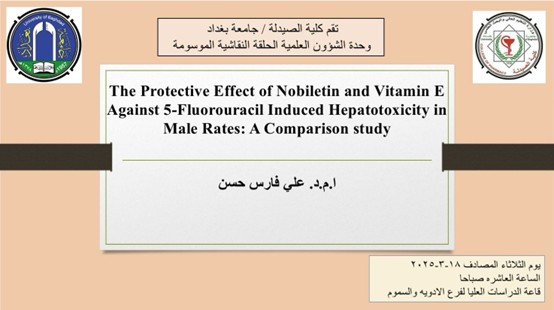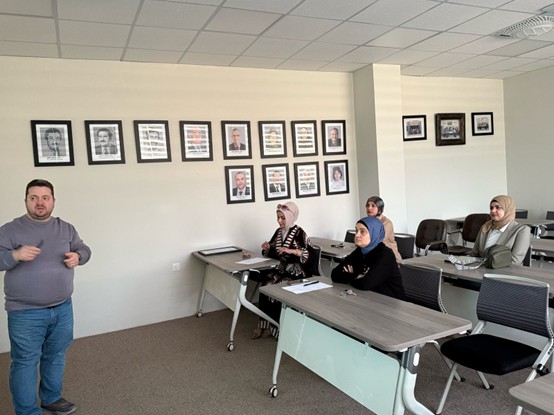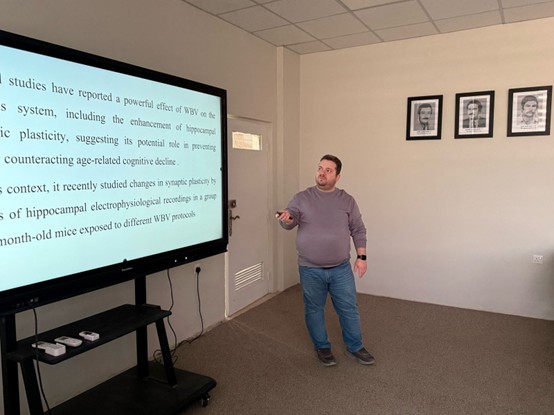Under the supervision of the Dean of the College of Pharmacy, Professor Dr. Sarmed H. Kathem Alkhateeb, the Scientific Affair Unit at the University of Baghdad/College of Pharmacy, held an in-person workshop entitled “The Protective Effect of Nobiletin and Vitamin E Against 5-Fluorouracil Induced Hepatotoxicity in Male Rats: A Comparison Study”, delivered by Assistant Professor Dr. Ali Faris Hassan, a faculty member at the Pharmacology and Toxicology Department. The workshop aimed to investigate the hepatoprotective potential of Nobiletin in mitigating the toxic effects induced by 5-Fluorouracil (5-FU) on hepatocytes. Additionally, it sought to evaluate the effectiveness of Nobiletin compared to Vitamin E, a well-known antioxidant with established protective properties against liver damage. The workshop included several topics, including the characterization of Nobiletin a polymethoxyflavone derived primarily from citrus fruits.Its chemical structure, pharmacological properties, and biological significance were thoroughly examined, highlighting its potent antioxidant and anti-inflammatory activities. These properties play a crucial role in protecting cells from damage caused by both exogenous and endogenous reactive oxygen species (ROS), making it a promising candidate for hepatoprotection. In addition to clarifying Nobiletin’s protective mechanism, focusing on its dual action in neutralizing oxidative stress and suppressing inflammation. Nobiletin aids in the neutralization of oxidative stress, the preservation of cellular integrity, and suppression of inflammatory pathways, all of which are crucial in preventing 5-FU-induced hepatotoxicity. The workshop further explored a comprehensive comparison between Nobiletin and Vitamin E, evaluating their effectiveness in reducing hepatic oxidative damage, promoting cellular repair, and modulating inflammatory responses.The workshop concluded that highlighting Nobiletin’s potential as a novel therapeutic approach to prevent chemotherapy-induced liver toxicity paves the way for future innovations in hepatoprotection and oncology supportive care.




